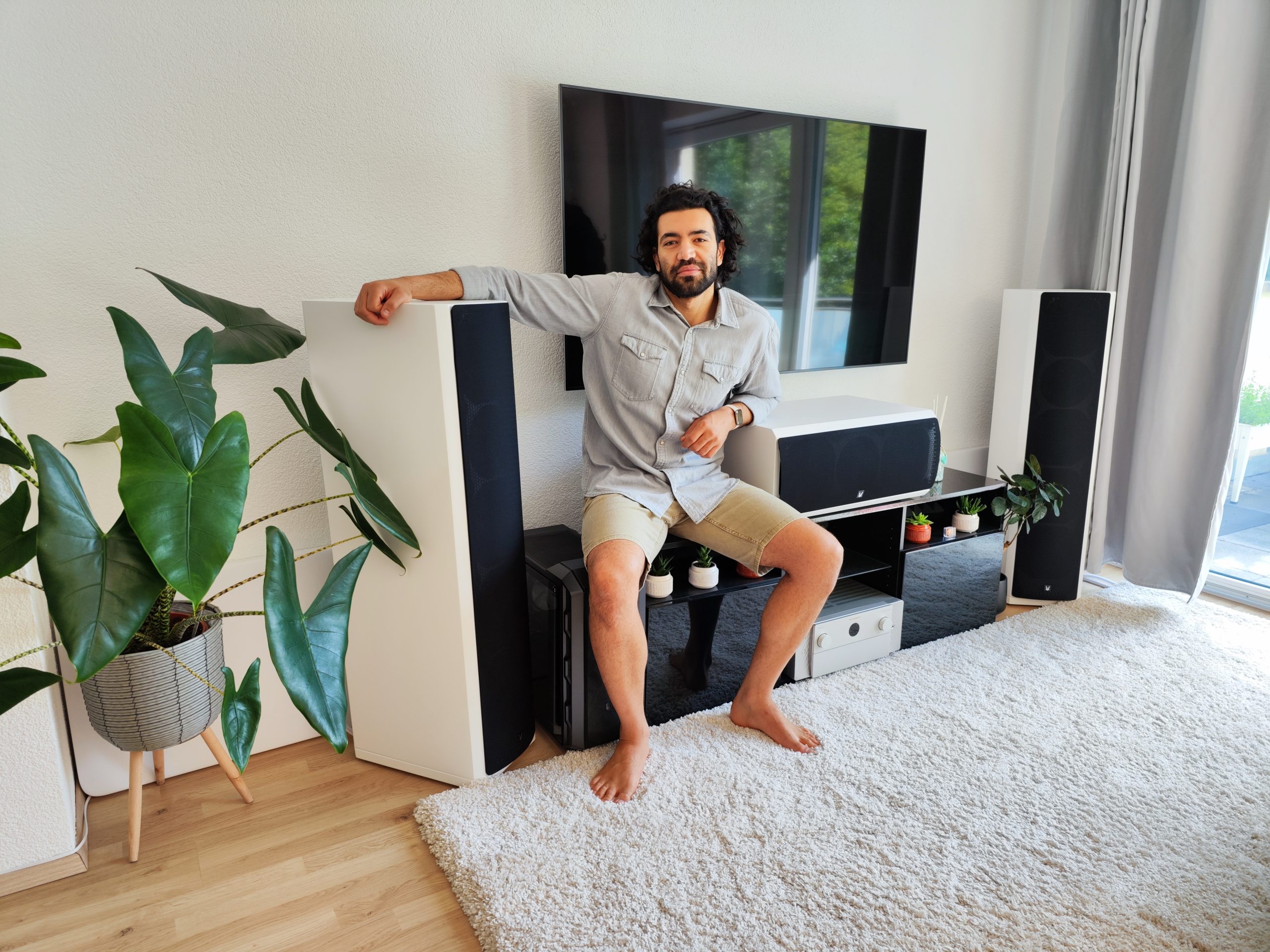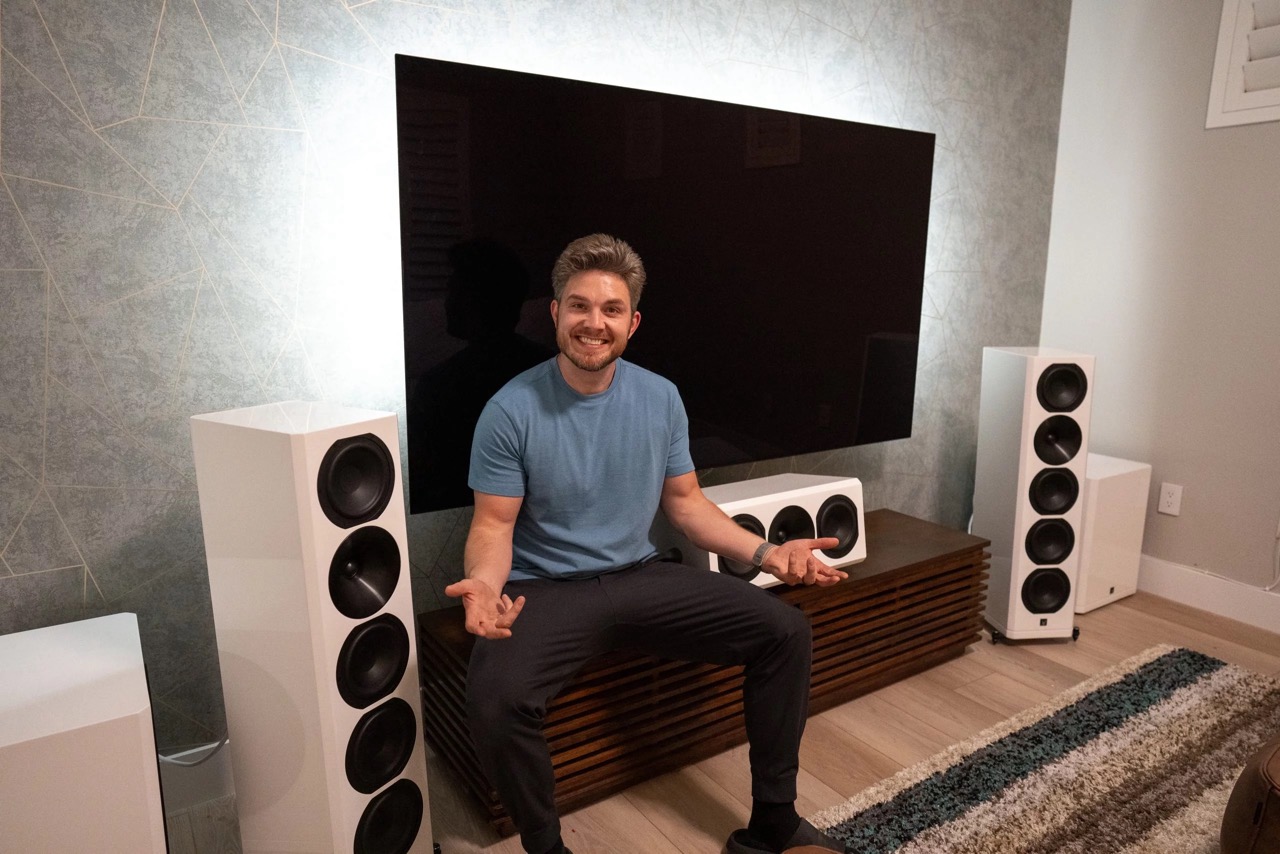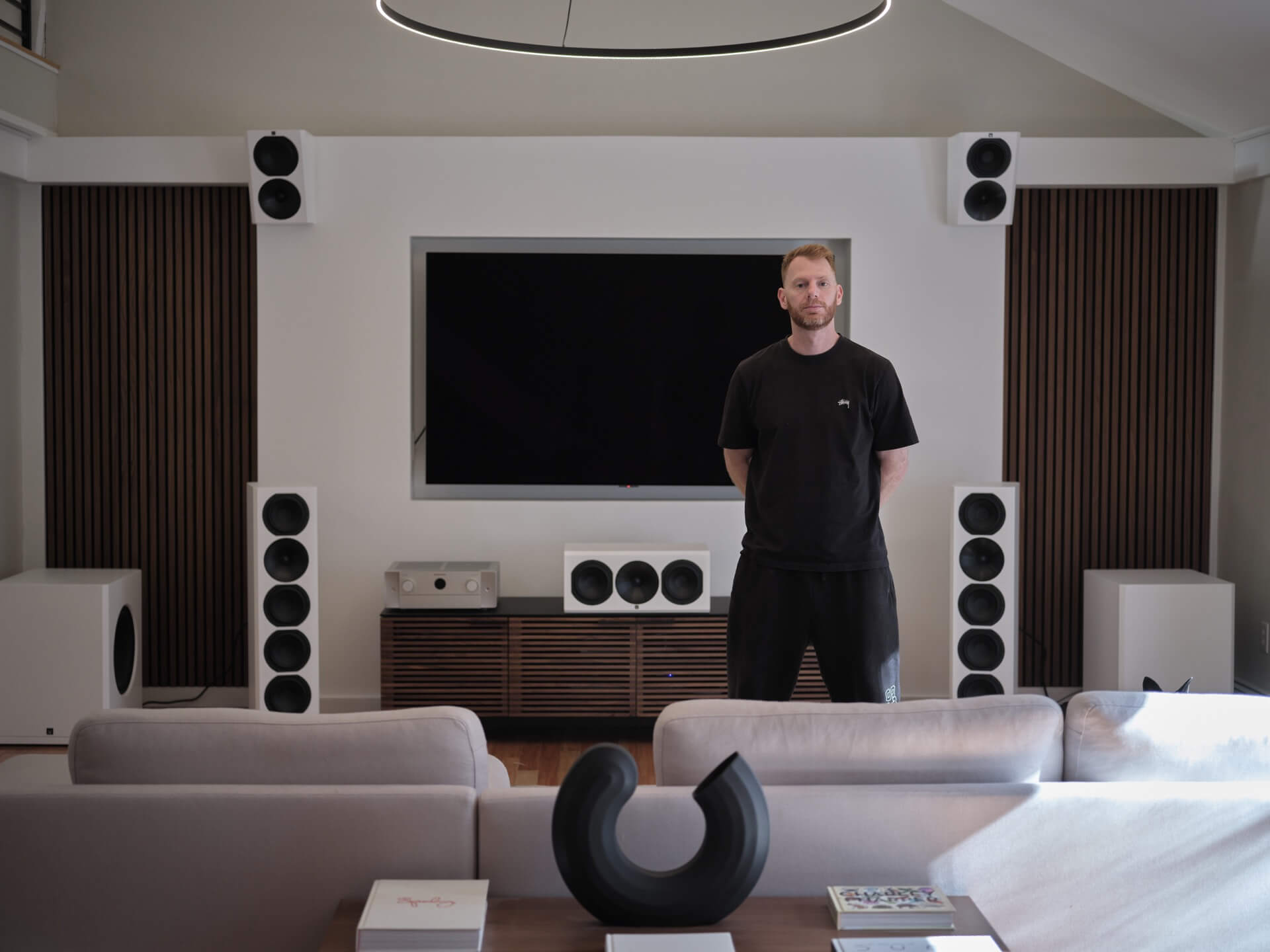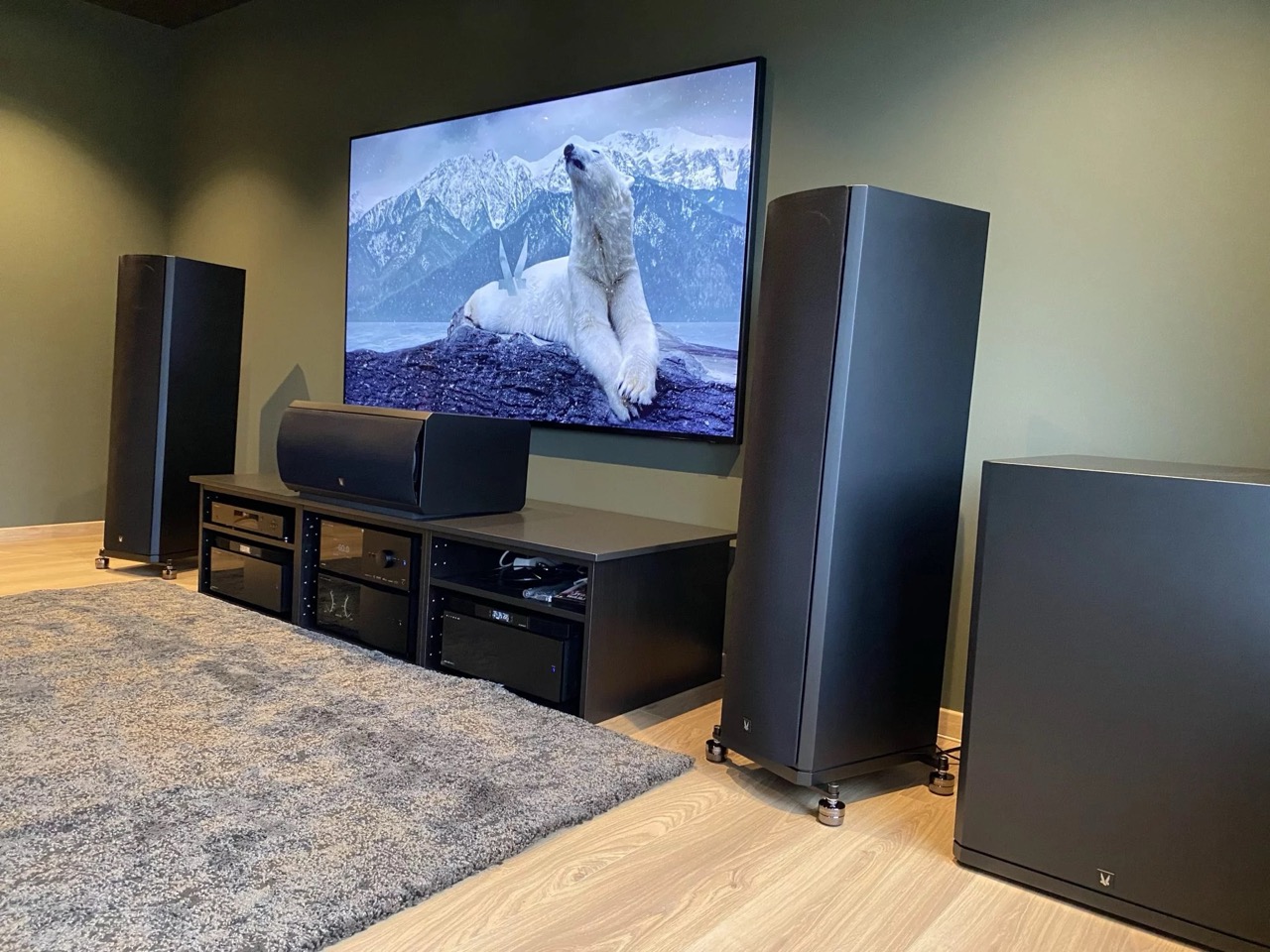Selecting the Best Video Equipment for Your Home Theater
Article summary - TL;DR
- Choose between projectors and TVs based on space, lighting, and maintenance needs.
- Consider 4K resolution for great quality without breaking the bank; 8K is for those wanting the latest tech.
- Screen aspect ratio matters: a 21:9 screen enhances movie experiences by eliminating black bars.
- Your home theater's connectivity is key; ensure plenty of HDMI inputs and consider the latest standards.
- Enhance your audio-visual setup with the 1723 Tower THX for immersive sound alongside your video choice.
Introduction
Building a home cinema is an exciting endeavor that brings the magic of the movies into the comfort of your own home. As the centerpiece of your setup, selecting the right video equipment is critical to creating an immersive viewing experience. This article will guide you through the essential considerations and options to help you choose the best video equipment for your home theater.
Whether you are a movie buff or a gaming enthusiast, the quality of your video equipment can make or break your home theater experience. With an array of technologies and specs to consider, such as resolution, projector types, and screen surfaces, making the right choice can seem daunting.
By the end of this guide, you’ll have a stronger understanding of the video components that match your space, preferences, and budget, setting you on the path to achieving cinematic bliss at home.
Understanding Resolution and Aspect Ratio
Resolution refers to the number of pixels that make up the image on a screen, which affects the sharpness and detail of your picture. Common resolutions include 1080p, 4K, and 8K. The aspect ratio, such as the standard 16:9 or the cinematic 21:9, determines the shape and size of the display. It’s important to choose a resolution and aspect ratio that fits the type of content you’ll primarily watch.
For most home theaters, a 4K resolution projector or television is an excellent choice, providing a great balance between cost and picture quality. However, if you’re interested in the latest technology and have a higher budget, an 8K display might be worth considering.
The aspect ratio is especially important if you intend to watch a lot of movies. A 21:9 screen can provide a more immersive experience for cinematic films by eliminating the black bars on the top and bottom of the screen, which are often seen when viewing widescreen content on a 16:9 display.
Projector vs. TV: Which Should You Choose?
When it comes to large-format displays, you have two primary choices: projectors or TVs. Projectors offer a larger image and a more authentic cinema experience, whereas TVs tend to deliver better brightness and color accuracy.
A key factor in this decision is your home theater’s lighting conditions. If you can control the ambient light, a projector and screen setup might be perfect for you. In contrast, TVs excel in environments with varying light levels due to their higher luminance.
Additionally, consider the maintenance involved. Projectors require periodic bulb replacements, while TVs typically have longer lifespans with less upkeep required. Ultimately, whether you choose a projector or TV will depend on the size of your space, your budget, and your personal viewing preferences.
Choosing a Projection Screen
Should you opt for a projector, the next step is selecting the right projection screen. The screen’s material, gain, and texture can all influence the image quality.
Screen material comes in various formats, from matte to reflective. A matte finish can help reduce glare, while a higher gain screen can boost the perceived brightness of the projector’s image in a room with some ambient light.
Furthermore, consider the screen’s texture. A smooth surface is generally recommended for higher resolution projectors to prevent any distortion or interference with the image’s detail.
Video Equipment Connectivity
With the heart of your video system chosen, you’ll need to ensure it has the right ports and connectivity options. HDMI 2.1 is the latest standard, supporting higher resolutions, faster frame rates, and features like variable refresh rates, which are important for gaming.
Additionally, think about how many devices you’ll want to connect to your projector or TV. You’ll need enough HDMI inputs for all your devices, such as media players, game consoles, and cable boxes.
Wireless connectivity options, such as Wi-Fi and Bluetooth, are also useful for streaming content directly to your projector or TV without the need for additional devices.
Conclusion: Balancing Preferences with Practicality
Your journey to a personal home cinema involves many choices, each affecting your overall experience. While it’s tempting to go for the latest and greatest technology, it’s crucial to consider what makes sense for your specific needs.
Budget, room size, and how you plan to use your home theater will influence whether a projector or TV is right for you, as well as what screen type to pair with your projector should you choose one.
Remember, the best video equipment for your home cinema isn’t always the most expensive or advanced—it’s what provides you with an enjoyable and satisfying viewing experience.
Frequently asked questions
What resolution should I choose for my home cinema?
For most home theaters, a 4K resolution projector or TV is ideal as it balances cost and picture quality. If your budget allows, you can consider an 8K display for the latest technology.
What aspect ratio is best for movies in a home theater?
A 21:9 aspect ratio is recommended for a more immersive cinematic experience, as it reduces black bars on widescreen films compared to the standard 16:9 ratio.
Should I choose a projector or a TV for my home theater?
A projector is great for a larger image and immersive experience, while a TV offers better brightness and color accuracy. Your choice will depend on your room's lighting conditions and personal preferences.
What should I consider when choosing a projection screen?
Consider the screen's material, gain, and texture. A matte finish reduces glare, while higher gain screens enhance brightness. A smooth surface is best for higher resolution projectors to avoid distortion.
What connectivity options do I need for my video equipment?
Ensure you have HDMI 2.1 ports for higher resolutions and frame rates. Check how many devices you will connect and consider wireless options like Wi-Fi and Bluetooth for streaming.
How do lighting conditions affect my choice between a projector and TV?
If you can control the ambient light, a projector may work well. In contrast, TVs are better suited for environments with varying light levels due to their higher brightness capabilities.
Do projectors require more maintenance than TVs?
Yes, projectors typically require periodic bulb replacements, while TVs have longer lifespans with less upkeep required.
What screen material is best for a home theater projector?
Opt for materials that suit your room's lighting. Matte finishes can help reduce glare, while higher gain screens can boost brightness in rooms with some ambient light.
How do I know what size screen to get for my projector?
The screen size should fit your room dimensions and seating distance. A general rule is to have the screen height be about one-third of the distance from the seating position to the screen.
Is the most expensive video equipment always the best choice?
No, the best video equipment for your home cinema depends on your specific needs. Consider your budget, room size, and viewing preferences for an enjoyable experience.








